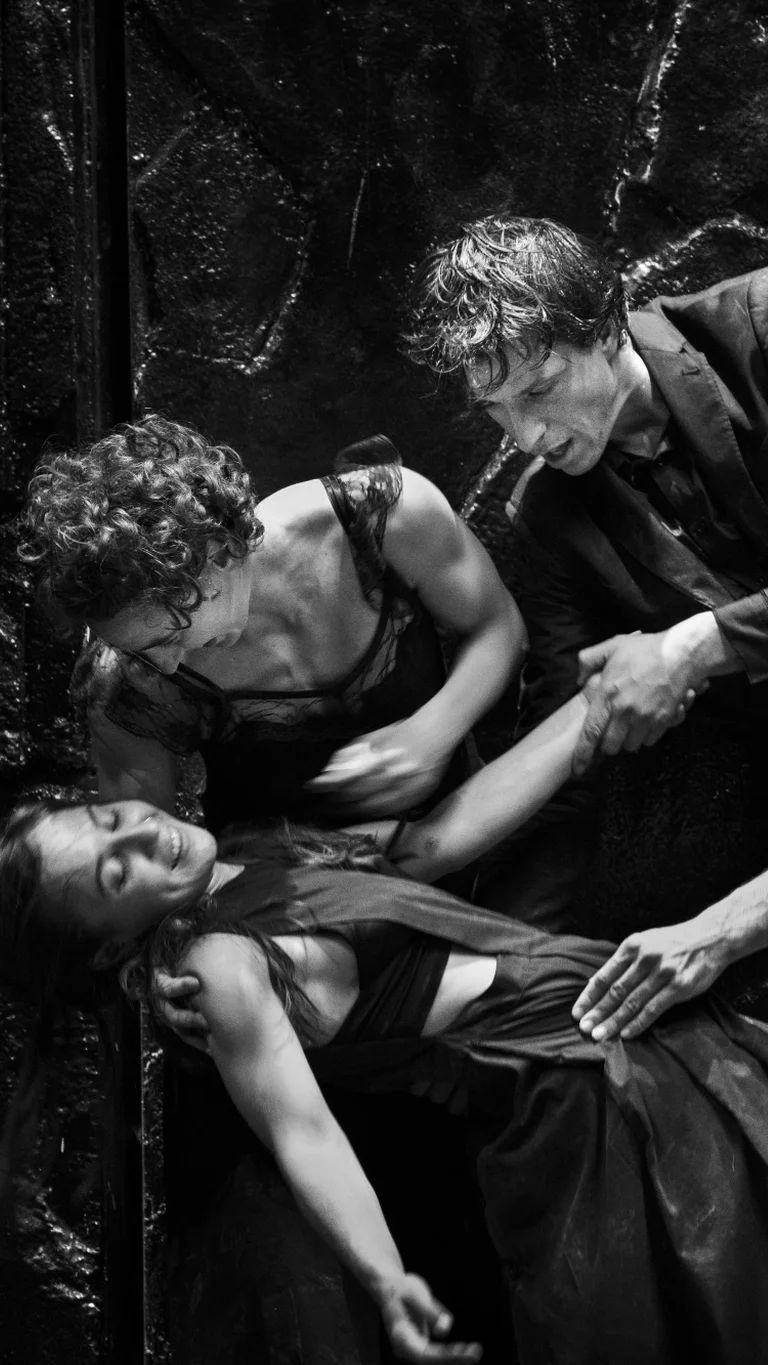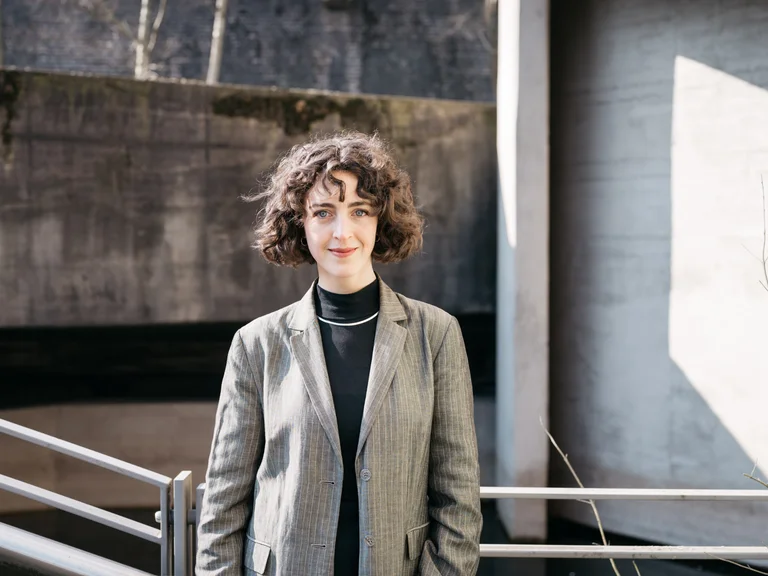
Breaking conventions
The Ruhrtriennale 2025 theatre programme
What makes the Ruhrtriennale theatre programme so special? How does internationality influence aesthetics, acting and storytelling, and what opportunities does the programme offer to those who want to experience theatre in new contexts and spaces? We discussed these and other topics with Teresa Bernauer, who is dramaturge for theatre at the Ruhrtriennale 2024–26.
Teresa, what makes the theatre programme at the Ruhrtriennale so special?
The Ruhrtriennale thrives on its internationality and unusual locations: large-scale, interdisciplinary productions are created in industrial cathedrals such as collieries and machine halls – works that often wouldn't find a place in regular theatre productions. These plays engage with their surroundings, history and architecture of the location. Artists are given the opportunity to delve deeply into their themes. The results are works of great artistic depth, featuring outstanding acting and singing, and combining different forms of expression to offer an emotionally charged, sensual and often beautiful exploration of humanity, meaning and politics.
To what extent do the discourses, voices and perspectives of international artists differ from those of German-language theatre?
They often differ fundamentally – because many of the invited artists do not come from a German-language cultural or historical context, yet they reflect it nonetheless. This results in a certain freedom and a more playful approach to topics that are often taken very seriously here in Germany. It is no coincidence that this year, a Belgian group is exploring war and fascist continuities; a French-Catalan collective is poetically addressing the decay of the world; and a Polish duo is examining the politicisation of AI through the lens of the Second World War.
„Great theatre is driven by its visual and acoustic dramaturgy — language is merely one element among many.“
In what ways does internationality influence the aesthetics, acting and storytelling on stage?
The multitude of influences brings a great deal of authenticity – whether because artists draw on their cultural experiences or because they collaborate closely with local performers and specialists. An extraordinary example of this is the collaboration between Kirill Serebrennikov and the Georgian Trinity State Choir for LEGENDE (2024), which celebrates the coming together of different origins, traditions, and musical worlds. International perspectives open up new freedoms in storytelling – not because German theatre doesn't also experiment with ruptures, but because different approaches are taken for granted here, such as those involving time, collages and assemblages. This year even includes circus, a traditionally nomadic art form combining a variety of elements, including animals.
How does theatre change when you don't fully understand the spoken language?
You will automatically begin to perceive different aspects more intensely: Image, sound and movement. Great theatre is driven by its visual and acoustic dramaturgy — language is merely one element among many. For our curatorial team, this is precisely what is important. It is no coincidence that two of this year's theatre productions are (almost) entirely without language. The power of images, especially in monumental spaces like these, should not be underestimated.
„All three of this year's theatre productions challenge convention in their own way.“
What opportunities does the programme offer to those who wish to experience theatre in different settings and spaces?
All three of this year's theatre productions challenge convention in their own way:
Oracle is an interdisciplinary performance that combines film and theatre, offering an intense, multilingual experience with a powerful impact.
Falaise surprises with its quiet poetry, humour, and circus art — a combination of acrobatics and absurd play with deep human themes.
Guernica Guernica is without language, offering a major visual event with mass scenes in which the audience becomes part of the experience by observing itself and the world.
How can you get involved in international theatre, even if you don't have any prior knowledge?
It may sound cheesy, but openness is key. Not everything needs to be fully understood. Trust that the artists are aware of the cultural differences. If you would like more context, you can find out more in the dramaturgical introductions, interviews and materials on our website. At the same time, getting involved and letting go are all part of the theatre experience.
What would you like the audience to take home with them after an evening at the Ruhrtriennale – apart from the programme booklet?
The feeling of having experienced something really special. The realisation that art, in such a place and with such skill, imagination and community spirit, has moved them. Something that will stay with them.
About the author
Teresa Bernauer is a German-Portuguese dramaturge and curator. She is the theatre dramaturge at the Ruhrtriennale 2024–26. Previously, she worked at Künstler*innenhaus Mousonturm, co-founded the Nocturnal Unrest Festival, and coordinated the outreach project Places to See at MMK Frankfurt.
